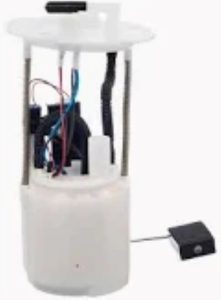Of course, lousy fuel can damage the fuel pump by transporting dirt, water, or debris into the gas system. The fuel pump pushes the gas from the tank to your engine at just the right pressure, and contaminants in with that gas can do dirty things to a fuel filter or even damage a pump. In 2020 the American Automobile Association (AAA) identified poor fuel quality as a factor in ~6% of fuel system related failures including damage to internal parts of the fuel pumps.
The fuel contains impurities which accrue in the tank and gets inside, thus hampering the natural flow of gas from it, as a consequence your pump is forced to work harder on its regular workload causing more wear and making it less efficient. Eventually, the fuel pump can overheat and fail from this additional burden. Another big concern is water in the fuel that can occur from condensation, or contaminated facilities. Theres no gasoline to keep the pump lubricated and that increased friction increases heat. This can lead to corrosion within the fuel system which can damage other components such as the fuel injectors and pump.
Bad fuel can also gum up the pump and please yet another flavor of unhappy combustion. Impure gasoline in your tank can cause poor combustion of the fuel in your engine which, after having carbon deposits accumulate within the fuel system. These deposits may obstruct the fuel injectors and/or filters, thereby challenging the pump to deliver sufficient fuel service toward the engine over time, thus degrading pump life. Fortunately, these risks can be managed by routine maintenance that includes changing the fuel filter every 30,000 to 40,000 miles. Consumer Reports told us in 2021 that the fuel filter replacement is a key to prevent the expensive fuel pump issues relating to dirty gasoline.

Hundreds of vehicles suffered extremely comprehensive fuel system damage, including defective fuel pumps thanks to contaminated gas at multiple gas stations in the U.S. as recently as 2019. It underscored the significance of buying fuel from high-quality stations that adhere to regular maintenance-practices for their storage systems.
Quality — a quote by automotive pioneer Henry Ford who said, “Quality means doing it right when no one is looking.” This statement certainly refers to fuel quality and how it affects the fuel pump. Using high-quality fuel and keeping the fuel system clean will result in a longer lifespan for your fuel pump, which normally lasts 100,0000-150,000 miles on my average.
So, to sum up, lousy fuel can wreck a pump by fouling filters and contaminating with water and promoting system corrosion. Use quality gas to protect your fuel pump and get the most out of it. Find out how you can diagnose or change a busted fuel pump at Fuel Pump.